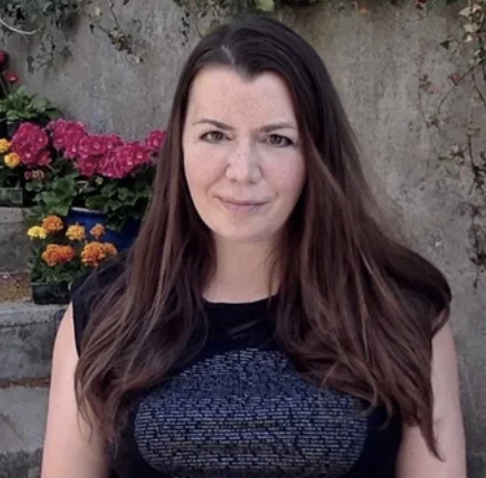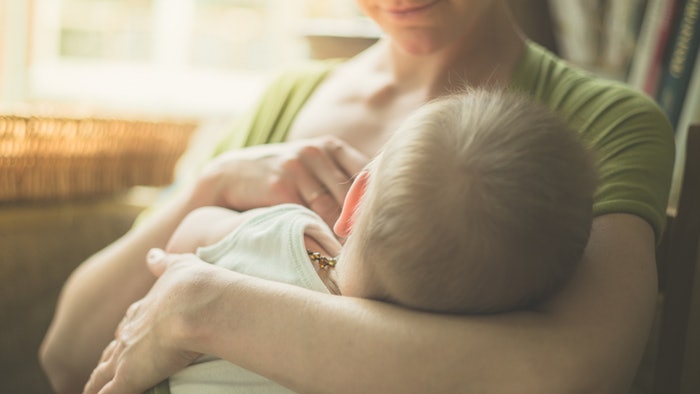"The moment a child is born, the mother is also born. She never existed before. The woman existed, but the mother, never. A mother is something absolutely new." - Osho
You may have heard of the concept of the 'fourth trimester' - the intense weeks after your baby is born when they are learning to adapt to this loud and bright new world. During this time, they have very frequent needs. With tiny tummies and developing brains, they feed lots, wake lots and want to be kept close to you. You are their reassurance; they recognise your voice, your smell and are comforted by the familiar beat of your heart. Gently caring for them eases them through their transition.
But what about you? Who is holding you and easing you into this loud, bright and unfamiliar world of new motherhood? New babies and new mothers actually have very similar needs; both should be fed regularly, cared for and nurtured gently in their development. But often, it feels like new mothers are cast aside. Visitors come to see the new baby, clutching tiny baby clothes and other nice but useless gifts. Babies are of course great, and of course people want to come see them and show their love. But they are only one part of this new family that has been born and making sure you get the love, care and nurturance you need too should be high on everyone's priority list.
So, here are some ideas where you can make sure you thrive through the fourth trimester too:
1. Don't be afraid to say no to visitors
Have set times, short visits, or even no visits in those early days at all. It really is up to you. You might love the idea of a full house. If you do, crack on. But it's also ok to say no, or to manage expectations. If people are coming, don't think you have to dress up / tidy up / cater for them. Ask them if they'd like a cup of tea and if they say yes, direct them to the kettle and tell them you'd like two sugars please.
2. Remember to eat regularly
It's amazing how you can actually forget to eat with a new baby to take care of. You get stuck underneath them breastfeeding or are busy trying to do all the stuff, and your wellbeing just gets pushed aside. But good, nutritious food helps you recover and deal with sleepless nights that bit better. Ask visitors to bring meals with them or ask for tasty food or subscriptions as a gift. Your partner could prepare easy to eat food before work or you could fill up a snack basket by your favourite chair. And there's always food delivery. Whatever works. But do eat. And try and eat well - although there's always room for cake.
3. Don't be afraid to ask for help
How often do we reply with 'no I'm fine thanks' if someone offers it. Sometimes we might feel weak or like we're not coping if we rely on others. But having a baby is a huge change and it's so normal to need the support of others. We weren't meant to do this alone; we were meant to raise babies in communities that looked out for each other. Lean on people close to you or look outside your family for support whether that's practically or emotionally. Remember doulas are not just for birth - they work postnatally caring for families too. Working with one can be a great way of easing you through these early weeks. Check out the Doula UK or Abuela Doulas UK websites.
4. It's ok to take time out ... or not
You do not have to be present 24/7 with your baby. It's absolutely ok to take time to put yourself first for a bit. Whether that's a walk, a coffee with a friend, even just to sit and stare into space. Alternatively, you might not feel ready to leave your baby and want to go do things that make you feel good, with them. You might want people to help you in ways that mean you don't need to leave your baby. This isn't 'making a rod for your own back' or refusing help, it's about doing what makes you feel happiest... which is what will benefit your baby most.
5. Know that you don't need to be perfect
Worries about 'getting it all right' are so common feeling after having a baby. You might worry that you don't know why they are crying or how to settle them. Your baby doesn't need you to be perfect though; they just need you to be 'good enough'. Research has shown that you don't immediately need to understand and solve your baby's needs every time. And the main things babies really want are food, warmth and someone to love them. They don't need Mozart or whatever product is currently being promoted as a baby must have.
6. If anything hurts, get it checked out
You're naturally going to be a bit sore after birth, but this should gradually heal and be getting better not worse. So, if pain is not easing, or crops up in new places, do ask for help. If it's stitch or tear related ask your midwife or GP to check. If you've got aches and pains in your back or hips from pregnancy or carrying your baby, think about massage or an osteopath - looking for one who specialises in supporting new mothers. Your recovery matters.
7. Know there is help out there if you need it
The months after having a baby are one of the most common times to need support with your mental health. If you're feeling low, anxious or angry, there are lots people who know what you are going through and are set up to offer support. Never think it's a sign that you're a 'bad mother' or don't care for your baby. Experiencing mental health difficulties are no more a choice than breaking your leg. Some places you might find useful include the Birth Trauma Association, PANDAS for antenatal and Postnatal Depression, CRYSIS for a crying baby, the National Breastfeeding Helpline for feeding difficulties, and Relate for relationship support. You can also speak privately to a counsellor - look for one who specialises in postnatal mental health.
Above all, remember that you matter too. You matter for you and for your baby. And you should never feel you can't put yourself first as well. Do things that nourish your body, mind and soul. And never be afraid to reach out for support. Let's make welcoming our new mothers just as big an event as welcoming a new baby.






